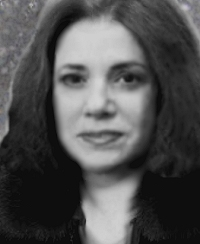A Quote by Plutarch
Grief is like a physical pain which must be allowed to subside somewhat on its own before medical treatment is applied.
Related Quotes
Illnesses which occur because of physical causes should be treated by doctors with medical remedies; those which are due to spiritual causes disappear through spiritual means. Thus an illness caused by affliction, fear, nervous impressions, will be healed more effectively by spiritual rather than physical treatment. Hence, both kinds of treatment should be followed; they are not contradictory.
Grief is real because loss is real. Each grief has its own imprint, as distinctive and as unique as the person we lost. The pain of loss is so intense, so heartbreaking, because in loving we deeply connect with another human being, and grief is the reflection of the connection that has been lost. We think we want to avoid the grief, but really it is the pain of the loss we want to avoid. Grief is the healing process that ultimately brings us comfort in our pain.
What one thinks continually, they become; what one cherishes in their heart and mind they make a part of the pulsation of their heart, through their own blood cells, and build in their own physical, that which its spirit and soul must feed upon, and that with which it will be possessed, when it passes into the realm for which the other experiences of what it has gained here in the physical plane, must be used.
Grief does not end and love does not die and nothing fills its graven place. With grace, pain is transmuted into the gold of wisdom and compassion and the lesser coin of muted sadness and resignation; but something leaden of it remains, to become the kernel arond which more pain accretes (a black pearl): one pain becomes every other pain ... unless one strips away, one by one, the layers of pain to get to the heart of the pain - and this causes more pain, pain so intense as to feel like evisceration.
The interesting thing about grief, I think, is that it is its own size. It is not the size of you. It is its own size. And grief comes to you. You know what I mean? I’ve always liked that phrase “He was visited by grief,” because that’s really what it is. Grief is its own thing. It’s not like it’s in me and I’m going to deal with it. It’s a thing, and you have to be okay with its presence. If you try to ignore it, it will be like a wolf at your door.
The theory of medicine, therefore, presents what is useful in thought, but does not indicate how it is to be applied in practice-the mode of operation of these principles. The theory, when mastered, gives us a certain kind of knowledge. Thus we say, for example, there are three forms of fevers and nine constitutions. The practice of medicine is not the work which the physician carries out, but is that branch of medical knowledge which, when acquired, enables one to form an opinion upon which to base the proper plan of treatment.
A noted cancer specialist in Boston said he believed that if some simple and inexpensive replacement for Chemotherapy for the treatment of cancer were found tomorrow, all US medical schools would teeter on the verge of bankruptcy, so integral a part of their hospital revenues is oncology, the medical specialty of cancer treatment
One strand of psychotherapy is certainly to help relieve suffering, which is a genuine medical concern. If someone is bleeding, you want to stop the bleeding. Another medical aspect is the treatment of chronic complaints that are disabling in some way. And many of our troubles are chronic. Life is chronic. So there is a reasonable, sensible, medical side to psychotherapy.
Following bio-medical treatment - which is basically changing the diet, giving vitamins and supplements and detoxing the body from metals or candida - and he recovered. And the reason the medical community has such a hard time with this is because we are treating and healing a vaccine injury ... this is truly a revolution.
Because of the war on drugs, pain patients are treated with skepticism and pain doctors live in fear of being prosecuted for overprescribing. The end result is that addicts still get their opioids without much trouble, while genuine patients often can't find treatment. Those who do must typically be tracked in a database and must schedule frequent, expensive doctor visits for surveillance like urine testing.









































